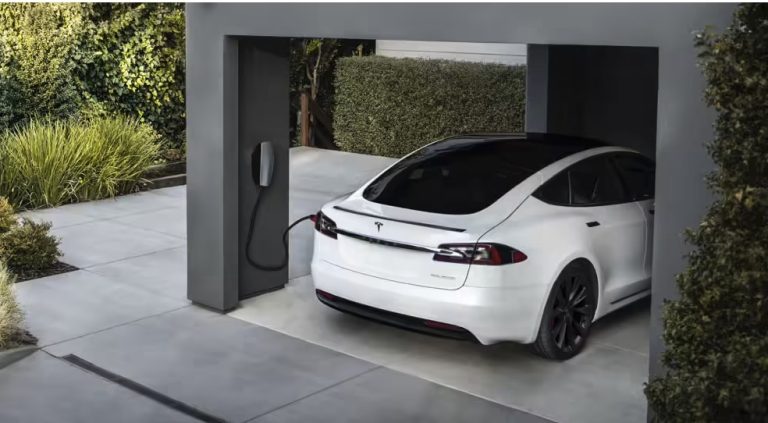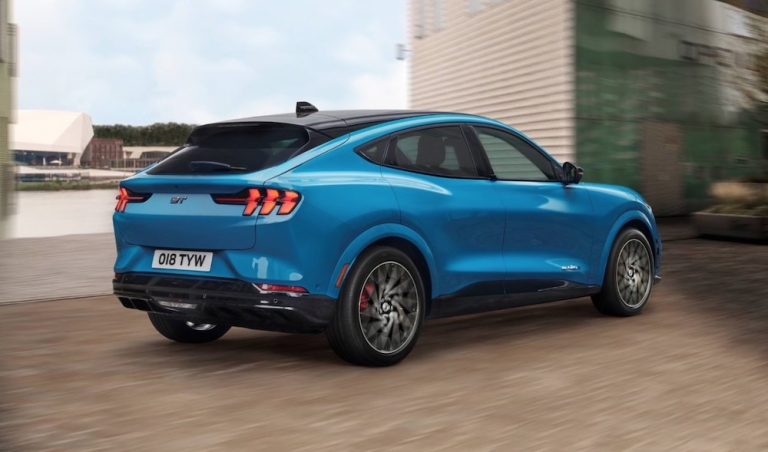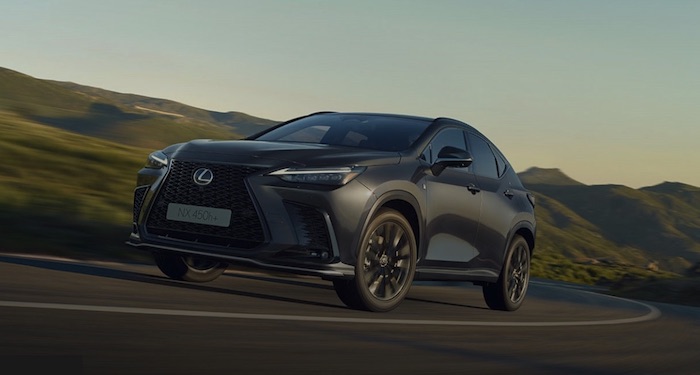Electric Cars: The Basics
For those of you new to zero-emission electric driving, we recommend a read of the following articles:
Sign up to the e-zoomed Electric Living newsletter
The All-Electric BMW iX SAV
BMW (Bayerische Motoren Werke AG), is a leading global automotive manufacturer headquartered in Munich, Germany. BMW is well known for its portfolio of luxury vehicles, to include the famed Rolls-Royce luxury cars. The group manufacturers a number of cars under its BMW brand, to include battery-electric vehicles (BEVs) and plug-in hybrid electric vehicles (PHEVs). The BMW i3 EV is an excellent example of a successful pure electric car. The company currently has the following portfolio of battery-electric vehicles (BEVs):
- The all-electric BMW iX1
- The all-electric BMW iX2
- The all-electric BMW iX3
- The all-electric BMW iX
- The all-electric BMW i3
- The all-electric BMW i4
- The all-electric BMW i5
- The all-electric BMW i7
The BMW iX electric vehicle (EV) is the first all-electric Sports Activity Vehicle (SAV) from the German automotive company. The all-new BMW iX EV includes the fifth generation BMW eDrive Technology. The pure electric SUV (SAV) concept vehicle was revealed at the 2018 Paris Motor Show as the Vision iNEXT.
The BMW Sports Activity Vehicle is available in two variants: the BMW iX xDrive40 and the BMW iX xDrive50. The range topping xDrive50 has a 111.5 kWh onboard EV battery, with a claimed zero-emission electric range up to 594 km.
Even accounting for the ‘real-world’ driving conditions, the electric vehicle should easily be able to deliver up to 500 km on a single charge. Ample range for most day-to-day needs and motorway driving. Moreover the variant has DC charging capability up to 195 kW and can be charged up to 80% in 35 minutes.
The entry-level BMW iX xDrive40 also delivers a decent pure electric range (claimed range up to 400 km). Expect a real-world range closer to 340 km. The EV offers DC charging up to 150 kW and can be charged up to 80% in 31 minutes. Both variants offer a three-phase AC onboard charger as standard.
Of course, most homes in Ireland are powered by single-phase (7.4 kW) power supply, limiting the ability to leverage the 3-phase onboard charger. Using a dedicated home charger like myenergi zappi, the larger EV battery can be fully charged in 17 hours, while the smaller battery will take up to 12 hours. In any case, most electric cars are charged overnight at home. We at e-zoomed recommend a topping up strategy to EV charging. This way charging times can be reduced.
Four-wheel drive comes as standard for both the variants. The xDrive40 can achieve 0-100 km/h in 6.1 seconds (max power: 326 hp), while the xDrive50 does it in 4.6 seconds (max power: 385 hp). Impressive given the increased weight of the EV due to the onboard EV battery. Of course, pure electric cars also benefit from instant torque. Both variants have a top speed up to 200 km/h.
For many, the futuristic exterior styling of the BMW e-SUV will be appealing, however, for those keen on the ‘familiar’, it may not be as compelling. Having said that, the electric SUV does make a bold statement. The interior quality, technology and equipment levels are in line with the premium price tag of the EV. The iX also includes the ‘Sky Lounge’ end-to-end panoramic glass sunroof.
The EV is suitable for both families and company-car drivers. Bottom-line, electric driving is good for the environment and the wallet!
| PROS | CONS |
|---|---|
| Good electric range for top variant | The xDrive50 is expensive. Cheaper alternatives available |
| 195 kW DC charging and 11 kW onboard charger | Entry-level variant limited to 150 kW DC charging |
| All-wheel drive as standard | Boot space limited (500 L) |
The All-Electric BMW iX SAV (credit: BMW)
| At A Glance | |
|---|---|
| EV Type: | Battery-Electric Vehicle (BEV) |
| Body Type: | Sports Activity Vehicle (SAV) |
| Engine: | Electric |
| Available In Ireland: | Yes |
| Variants (3 Options) |
|---|
| BMW iX Sport (from € 85,935) |
| BMW iX M Sport (from € 89,625) |
| BMW iX M Models (from € 151,015) |
| EV Battery & Emissions | |
|---|---|
| EV Battery Type: | Lithium-ion |
| EV Battery Capacity: | Available in two battery sizes: 76.6 kWh/ 111.5 kWh |
| Charging: | Up to 195 kW DC rapid charging (10%-80%: 35 mins). On-board charger 11 kW AC |
| Charge Port: | Type 2 |
| EV Cable Type: | Type 2 |
| Tailpipe Emissions: | 0g (CO2/km) |
| Warranty: | 8 years or 160,000 km |
| Average Cost Of Residential Charging | |
|---|---|
| Battery net capacity: 16.7 kWh | € 4.00 |
| Battery net capacity: 30.0 kWh | € 7.19 |
| Battery net capacity: 39.2 kWh | € 9.39 |
| Battery net capacity: 45.0 kWh | € 10.78 |
| Battery net capacity: 50.0 kWh | € 11.98 |
| Battery net capacity: 64.0 kWh | € 15.34 |
| Battery net capacity: 71.0 kWh | € 17.01 |
| Battery net capacity: 77.0 kWh | € 18.45 |
| Battery net capacity: 90.0 kWh | € 21.57 |
| Battery net capacity: 100.0 kWh | € 23.97 |
- Note 1: The average cost of residential electricity in Ireland varies depending on the region, supplier and type of energy used. An average for Ireland is 23.97 cents/kWh.
- Note 2: Not all EV manufactures make available the data on net EV battery capacity, and in a number of instances the EV battery capacity advertised, does not state if it is gross or net capacity. In general, usable EV battery capacity is between 85% to 95% of the gross available capacity.
| Charging Times (Overview) | |
|---|---|
| Slow charging AC (3 kW – 3.6 kW): | 6 – 12 hours (dependent on size of EV battery & SOC) |
| Fast charging AC (7 kW – 22 kW): | 3 – 8 hours (dependent on size of EV battery & SoC) |
| Rapid charging AC (43 kW): | 0-80%: 20 mins to 60 mins (dependent on size of EV battery & SoC) |
| Rapid charging DC (50 kW+): | 0-80%: 20 mins to 60 mins (dependent on size of EV battery & SoC) |
| Ultra rapid charging DC (150 kW+): | 0-80% : 20 mins to 40 mins (dependent on size of EV battery & SoC) |
| Tesla Supercharger (120 kW – 250 kW): | 0-80%: up to 25 mins (dependent on size of EV battery & SoC) |
- Note 1: SoC: state of charge
| Dimensions | |
|---|---|
| Height (mm): | 1695 |
| Width (mm): | 1967 |
| Length (mm): | 4953 |
| Wheelbase (mm): | 3000 |
| Turning Circle (m): | 12.8 |
| Boot Space (L): | 500 |
| BMW iX xDrive40 | |
|---|---|
| EV Battery Capacity: | 76.6 kWh |
| Pure Electric Range (WLTP): | 400 km |
| Electric Energy Consumption (kWh/100km): | 20.7 – 21.6 |
| Charging: | 150 kW DC rapid charging (10%-80%: 31 mins). Onboard charger 11 kW AC (0%-100%: 7 hrs 25 mins) |
| Top Speed: | 200 km/h |
| 0-100 km/h: | 6.1 seconds |
| Drive: | All-wheel drive (AWD) |
| Electric Motor (kW): | 240 |
| Max Power (hp): | 326 |
| Torque (Nm): | 630 |
| Transmission: | Automatic |
| Seats: | 5 |
| Doors: | 5 |
| Driving Modes: | N/A |
| Unladen Weight-EU (kg): | 2,440 |
| Colours: | 9 |
| NCAP Safety Rating: | Five-Star |
| BMW iX xDrive50 | |
|---|---|
| EV Battery Capacity: | 111.5 kWh |
| Pure Electric Range (WLTP): | 594 km |
| Electric Energy Consumption (kWh/100km): | 20.7 – 21.6 |
| Charging: | 195 kW DC charging (10%-80%: 35 mins). Onboard charger 11 kW AC (0%-100%: 10.75 hrs) |
| Top Speed: | 200 km/h |
| 0-100 km/h: | 4.6 seconds |
| Drive: | All-wheel drive (AWD) |
| Electric Motor (kW): | 385 |
| Max Power (hp): | 523 |
| Torque (Nm): | 765 |
| Transmission: | Automatic |
| Seats: | 5 |
| Doors: | 5 |
| Driving Modes: | N/A |
| Unladen Weight-EU (kg): | 2,585 |
| Colours: | 9 |
| NCAP Safety Rating: | Five-Star |
Ireland: EV Market Overview
As is the case in a number of global markets, to include, the European Union and the United Kingdom, the sale of electric cars in Ireland is also fast gaining momentum. In 2022, a total of 23,356 new electric cars were registered in Ireland. BEVs commanded the highest market share (67.13%), between the different types of electric cars, with PHEVs commanding just over 30% market share. The majority of the plug-in hybrids registered were petrol plug-in hybrids, with only very few diesel plug-in hybrids registered.
We can expect this trend to continue, given the significant increase in electric range, affordability and choice of pure electric cars in Ireland. Top EV brands in Ireland in 2022: Volkswagen, Hyundai, Kia, BMW and Volvo. Other popular electric car brands include: Tesla, Mercedes-Benz, Nissan, Peugeot and Audi.
In January 2023, battery-electric vehicles (BEVs) and plug-in hybrid electric vehicles (PHEVs), accounted for over 20% of all new cars registered in Ireland. A total of 3,674 BEVs and 1,900 PHEVs were registered. The all-electric IONIQ 5 was the best-selling EV in Ireland in January 2023.
The government has set a target of 936,000 electric vehicles (EVs) by 2030, with 845,000 to be private passenger cars. This will be approximately a third of the vehicles on roads in Ireland (currently there are 2.8 million vehicles on the road). Like many other governments, Ireland is committed to ending the sale of internal combustion engine (ICE) cars by 2030.
The government is committed to the rapid adoption of electric cars in the country. The Department of Transport has committed€100 million for EV subsidies in 2022 (almost double the commitment in 2021). The grant for private electric vehicles is up to€5,000 on qualifying battery-electric vehicles (BEVs). Plug-in hybrid electric vehicles (PHEVs), do not qualify for the electric vehicle grant.
| Top 5 Electric Cars (2022) | Market Share (%) |
|---|---|
| Volkswagen ID.4 | 12.77% |
| Hyundai IONIQ 5 | 4.99% |
| Tesla Model 3 | 4.47% |
| Kia EV6 | 4.09% |
| Volkswagen ID.3 | 3.96% |
While e-zoomed uses reasonable efforts to provide accurate and up-to-date information, some of the information provided is gathered from third parties and has not been independently verified by e-zoomed. While the information from the third party sources is believed to be reliable, no warranty, express or implied, is made by e-zoomed regarding the accuracy, adequacy, completeness, legality, reliability or usefulness of any information. This disclaimer applies to both isolated and aggregate uses of this information.






























